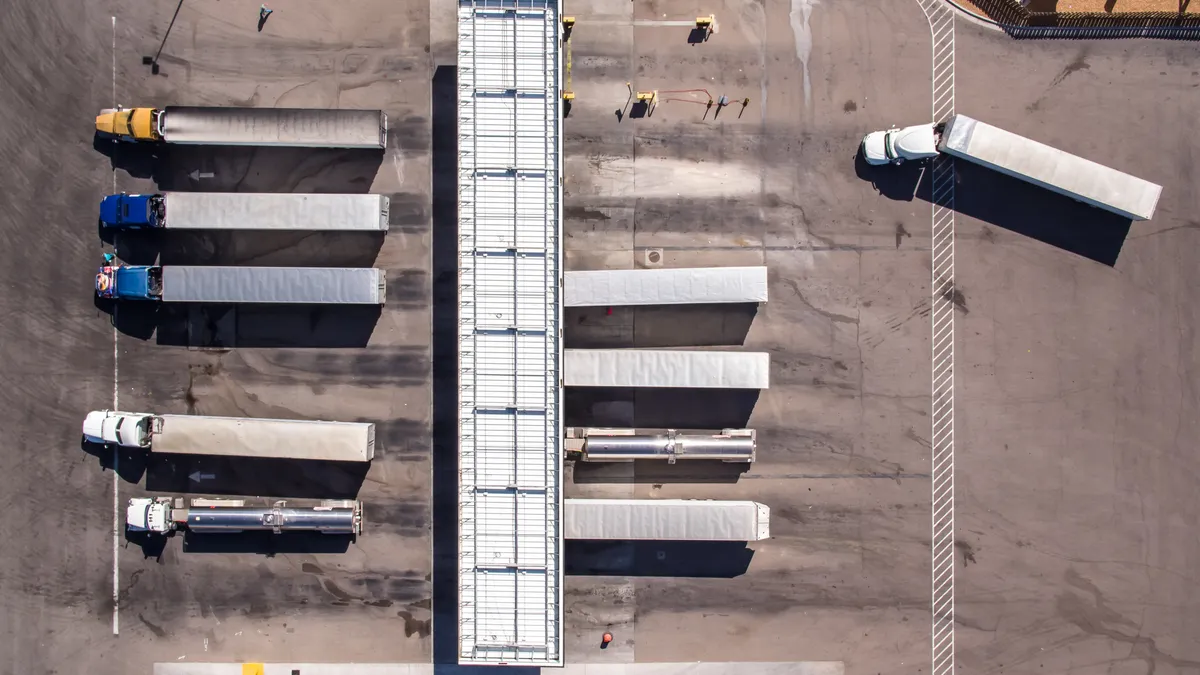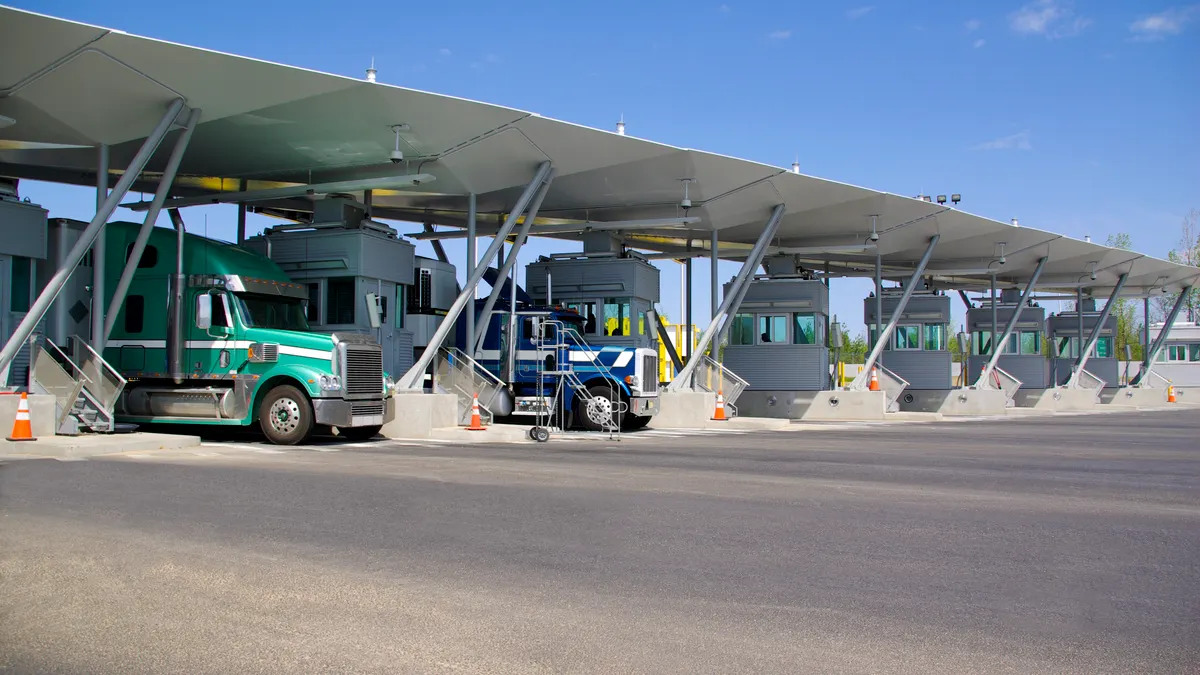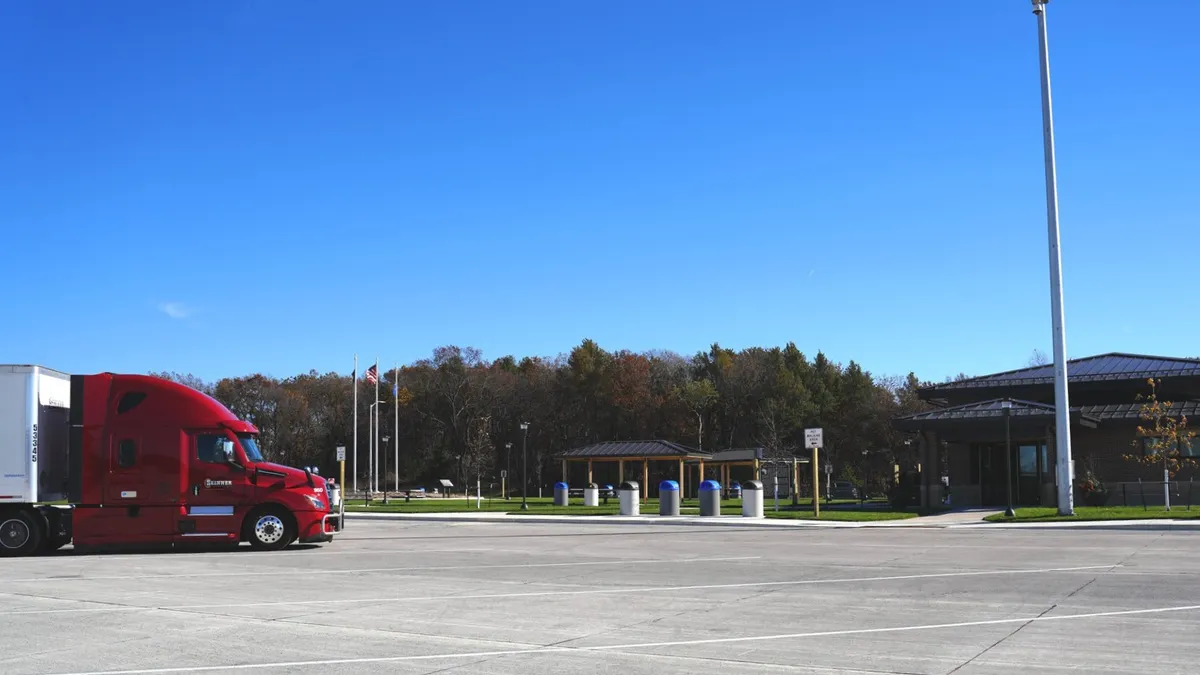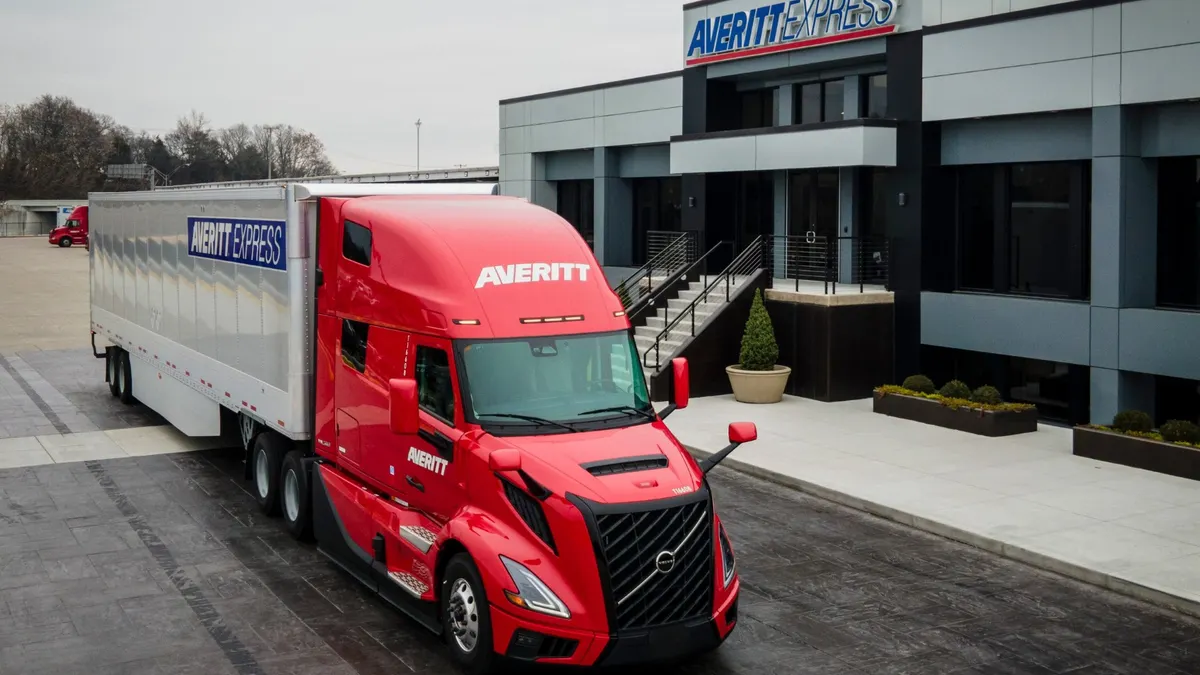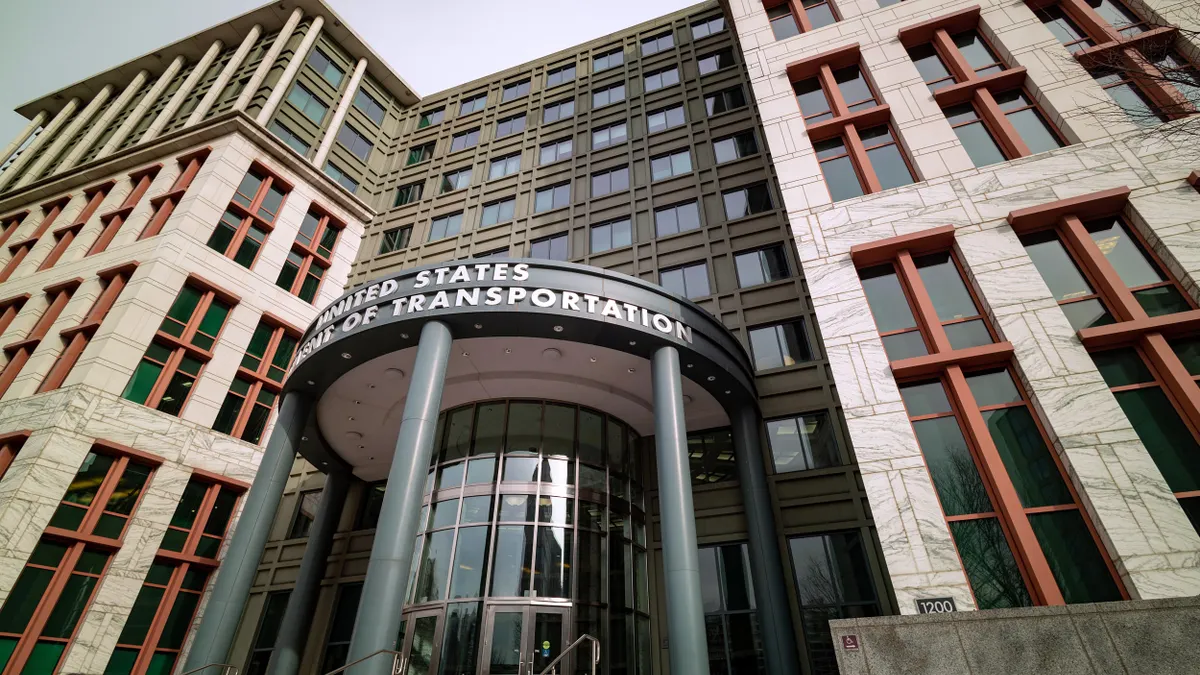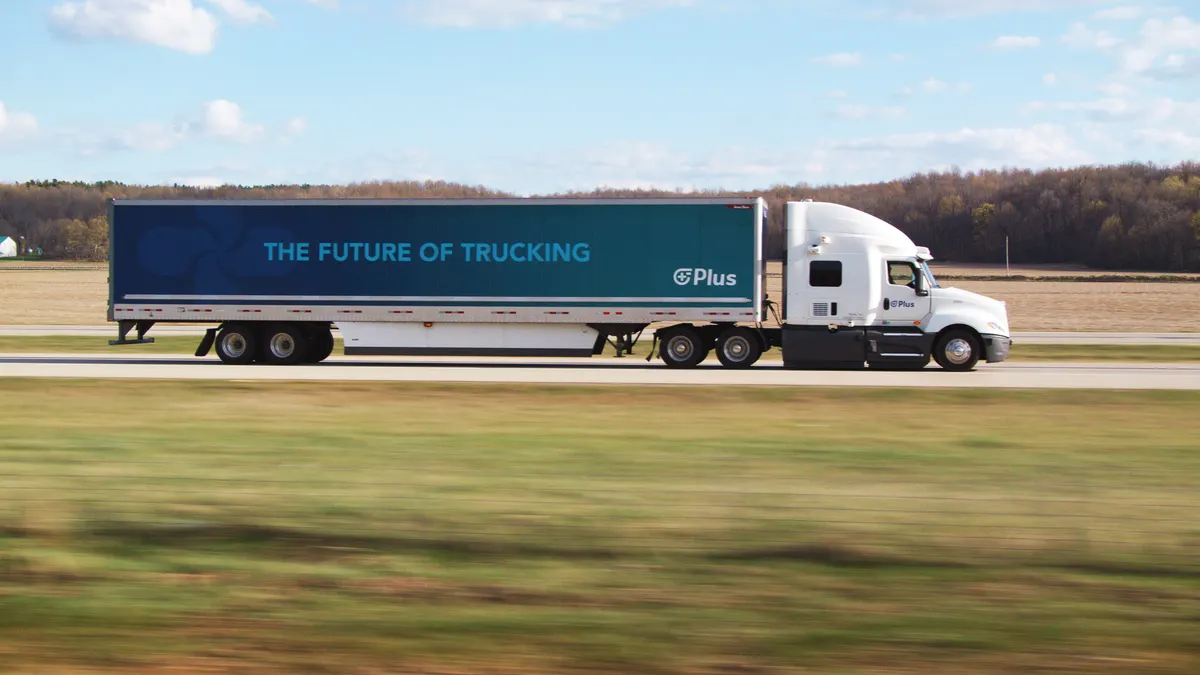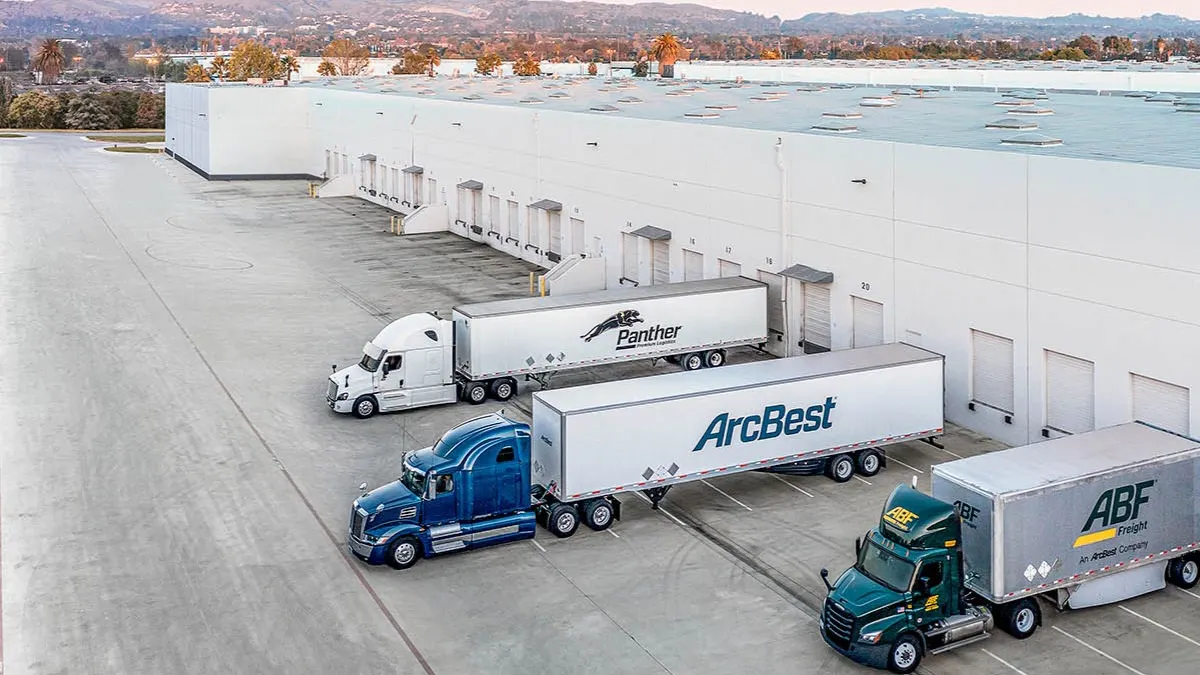Before traveling to the American Trucking Associations 2023 Management Conference & Exhibition last month, Trucking Dive asked truck drivers at a rest area in Maryland what questions they have.
On the final day of the conference, a Trucking Dive reporter put one of the drivers’ questions to ATA executives: With the truck doing “half the driving for us,” as the driver put it, why are speed limiters necessary?
ATA President and CEO Chris Spear elaborated during the discussion on ATA’s reasons for changing its policy on the tech in 2019, and First Vice Chairman Dennis Dillinger shared the benefits his company has seen. An FMCSA rule requiring speed limiters is expected by the end of the year.
Editor’s note: The following interview has been edited for clarity and brevity.
Trucking Dive: What is ATA’s policy on speed limiters?
ATA PRESIDENT & CEO CHRIS SPEAR: Sixty-five mph, up to 70, if you have certain technologies assigned to it — collision mitigation, adaptive cruise control, cameras, speed governors, all the things that come with that governor. You have to have some additional technologies attached to it that allow you to do 70.
That was a compromise between our large, medium and small carriers at the Safety Policy Committee. It was developed by a couple of members — one very small and one very large. It wasn’t unanimous, but it was pretty well-received and adopted, and has since been policy.
Do you expect FMCSA to set a 68-mph limit?
SPEAR: The 68 I think you're referring to is what has been rumored because they may or may not have put it out there accidentally. They certainly pulled it down, but it alluded to 68. We'll see. It's not going to probably be out until the end of the year. It's not final at the moment. We'll still continue to push our policy if it’s not reflected.
What percentage of your membership has adopted speed limiters?
SPEAR: Great question. We can get back to you on that.
ATA PRESS SECRETARY SEAN MCNALLY, VIA EMAIL OCT. 25: We can say pretty confidently, based on industry sources, that at least three-quarters, if not more, of our members’ fleets currently limit the speed of their trucks, and have for some time. The technology to limit commercial vehicle speeds has been standard on commercial vehicles since 1993, and has been in widespread use across the industry for decades.
DENNIS DILLINGER, CARGO TRANSPORTERS PRESIDENT & CEO: Cargo Transporters has been at 65 mph since the inception of the company in 1982. Now, we did start using in the last two years a product called SmartPass on our Freightliners that allows us to give the truck a temporarily higher speed limit.
We allow 70 mph for up to an hour in a 24-hour period, and that's to get around vehicles. Most of the drivers do not use the full hour. They use it when they need it.
We're hoping 70 is the number. I don't think we will increase our speed to 70. We'll leave it at 65 with the ability to pass when the ruling comes out. Drivers out there in the industry, for the most part, they want to be safe. I’m curious, what did the driver tell you?
The driver asked: “Why can’t we go the same speed as other drivers if the truck is doing half the driving for us?”
SPEAR: It’s the physics of it. Facts are facts. You have 80,000 pounds, the federal limit. The physics are that a collision of a vehicle of that size at speeds of 70-plus do more damage, and the likelihood of there being a fatality goes up. It’s just simple physics. We have always amplified safety first, always, and we will continue to do so.
That’s why we have a speed limiter policy that is developed by our members — not ATA. I don't make this decision. They make this decision. And it's a consensus, and we have a very strong one. It was revised and it's going to continue to be revised.
I’ve heard critics of our policy say, ‘We don't know what ATA’s policy is. Their policy always changes.’ Yeah. It's because technology and innovation are shaping the future, and we respond to that. When a safer technology comes on the market, and there's a return on that, carriers adopt it. This is no exception. In 2019, we changed it to reflect technology.
Critics have argued that speed limiters have more to do with fuel savings than safety.
SPEAR: That’s why we adopted 70, because we're starting to see data come in from carriers, those that were responsible for our latest policy for 2019, who have had the time now to see the return on running at 70.
They're getting fuel savings. The adaptive speed control is a really good indicator. That data has started to come in, and they say we can run higher than 65 and still maintain that fuel savings. So that is reflected into the speed limiter policy. So, good data drives good policy.
Fuel savings are a benefit, there's no question. I wouldn't dismiss it, but safety first. There's gains for emissions, obviously, fuel — there's lots of indirect plays there that are certainly measurable. But it's safety first.




